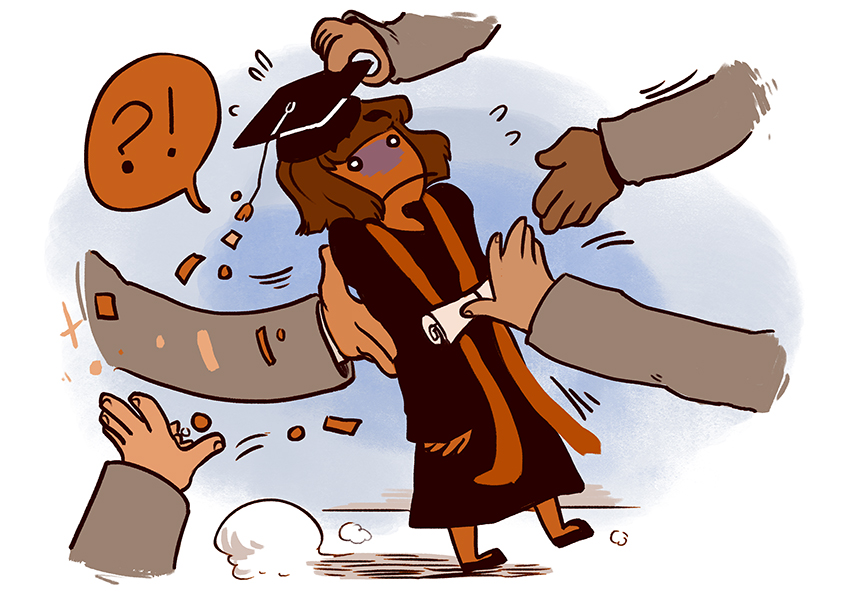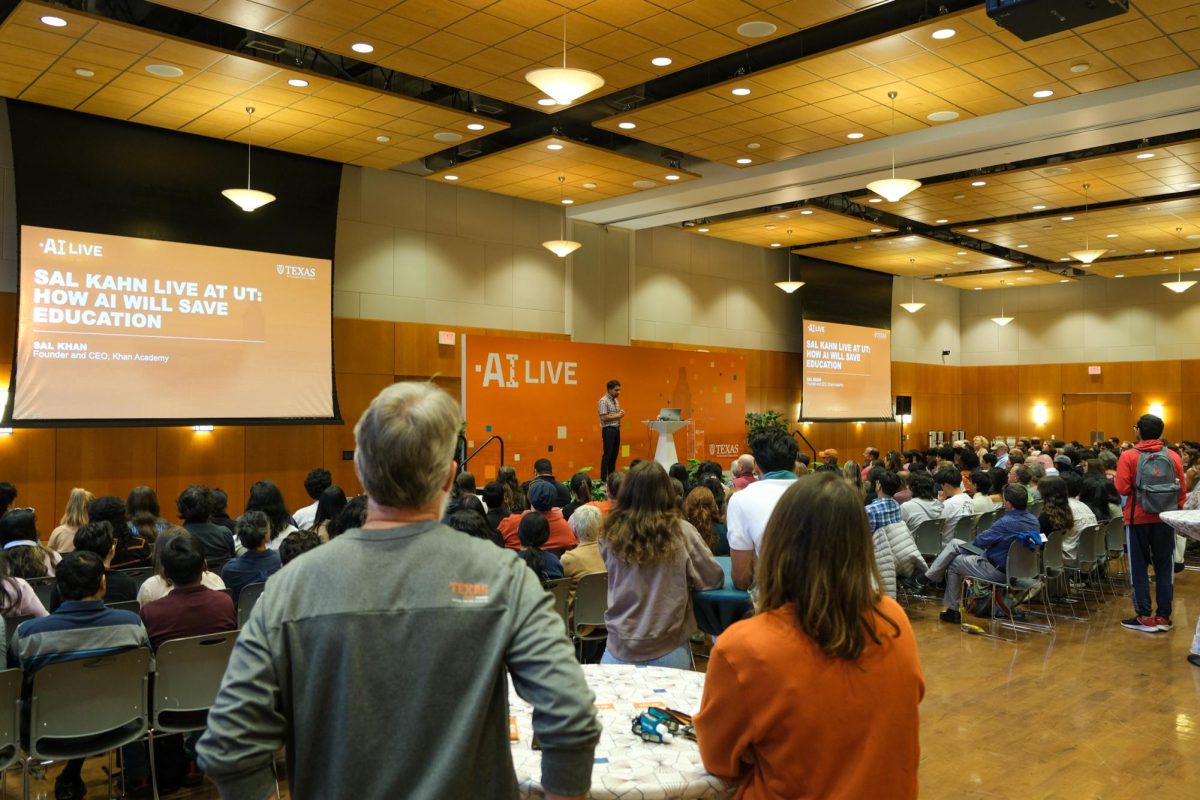Junior Quynhanh Tran had her four years at UT all laid out, but her plans were shaken up by UT’s new auto-graduation procedure.
Tran planned to complete her economics and Plan II degrees next fall and finish her government degree in Washington, D.C. through the Archer Fellowship Program during the Spring of 2019.
But a couple of weeks ago, an advisor warned her the University could graduate her before she finishes all of her degrees. She worried this would prevent her from participating in an Archer Program internship — something she had been dreaming of since high school.
“This was the first time I had heard about auto-graduation,” Tran said. “Because of (auto-graduation), everything is getting switched around for me.”
Through the auto-graduation procedure, the University identifies students with 100 percent of their degree audit completed and adds them to the graduation list instead of waiting for students to apply for graduation, said Cassandre Alvarado, director of student success and graduation initiatives. Students selected for auto-graduation are notified through a secure academic note.
Since only degree-seeking students can participate in the Archer program’s spring or fall fellowships, some auto-graduated students may have run into trouble when auto-graduation was implemented last spring. However, the University has created an appeals process for students concerned about auto-graduation, which are reviewed on a case-by-case basis.
“Student Success Initiatives has not denied any appeal to date that involved participation in the Archer Fellowship program,” said Katie Romano, executive director of the Archer Center.
Tran worries auto-graduation could become a roadblock for students pursuing multiple degrees who do not know about the procedure. Through an ongoing Liberal Arts Council survey about auto-graduation, Tran has heard of students facing similar eligibility concerns with UTeach, the Humanities Program and study abroad.
Tran said those who do know are trying to avoid the procedure by not claiming all of their transfer or Advanced Placement credits. Tran is delaying her government thesis in order to ensure her participation in the Archer program. She said she believes the University is not communicating the new auto-graduation procedure because they do not want students to work around it.
“When you do something that so fundamentally affects students’ experiences, you should tell students what those changes are, especially if they’re meant to help students,” Tran said. “This just seems like a horrible conspiracy theory.”
Last fall, 3,084 undergraduates declared double majors and, in the spring of 2017, an additional 3,229 double majors were declared. These students all face the possibility of being selected for auto-graduation if they complete one degree before the other.
Currently, there is not a campaign to tell students about auto-graduation, Alvarado said, because the University expects students to graduate upon completing their degrees.
“What we’re trying to message about is the expectation that students graduate in four years,” Alvarado said.
Alvarado said the University introduced the procedure last December to help students who forget to apply for graduation, but only 2 percent of students hoping to leave UT forget to apply for their degree.
“All we’re doing is facilitating the process by making sure students don’t get left behind because of a silly piece of paper,” Alvarado said.
Students can continue pursuing UTeach classes and other degrees after completing one, Alvarado said. English junior Claire Zimmerman said she is taking UTeach courses to get a teaching certification, but worries auto-graduation could prevent her from receiving financial aid for her last semester.
“I’m going to try to get financial aid for (fall 2018), but I won’t be able to for that final semester,” Zimmerman said.
Students seeking a second degree can take out loans but would no longer qualify for the Pell and Texas grants commonly awarded to undergraduates.
Tran said students like herself are already on track to graduate within four years and just want to take advantage of UT’s programs.
“If you want to stay here and that would better your academic experience, UT should let you, because we’re paying tuition and the purpose of the University is to serve us,” Tran said.


















